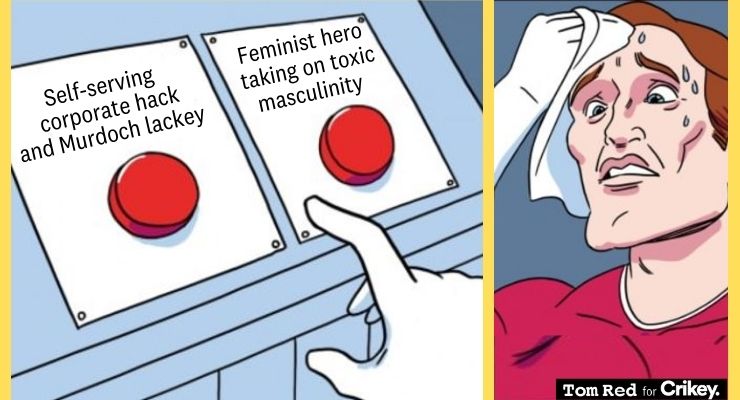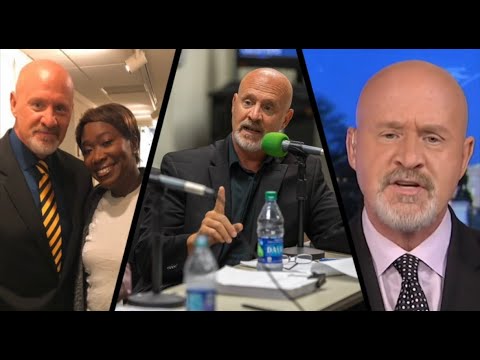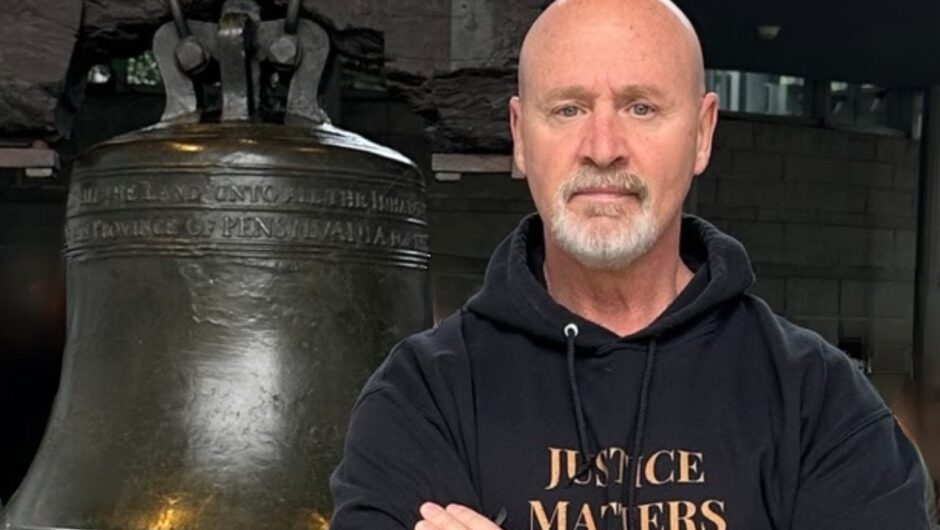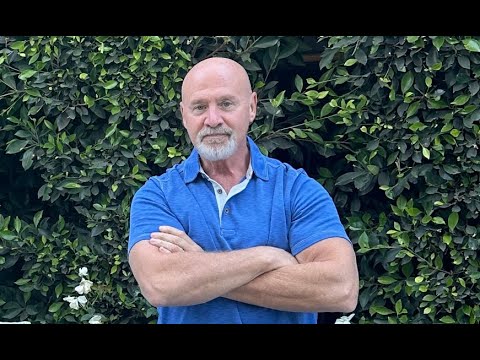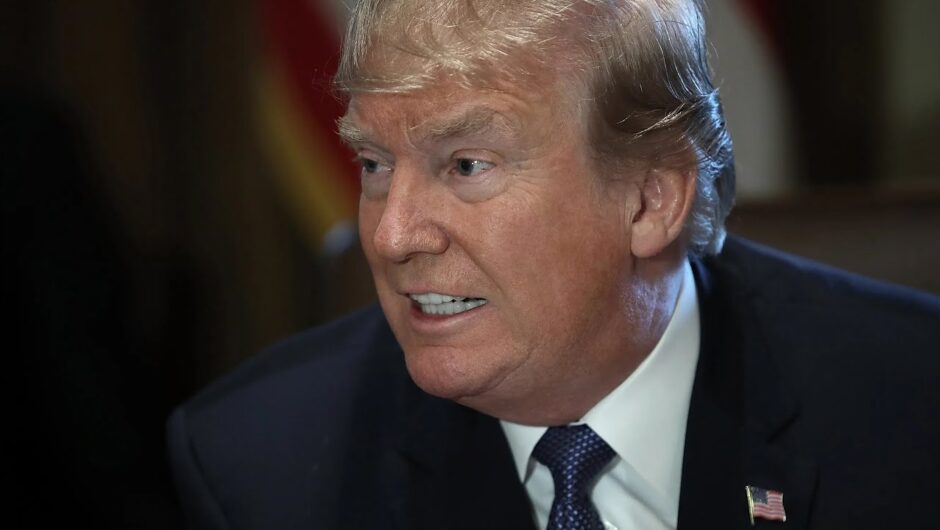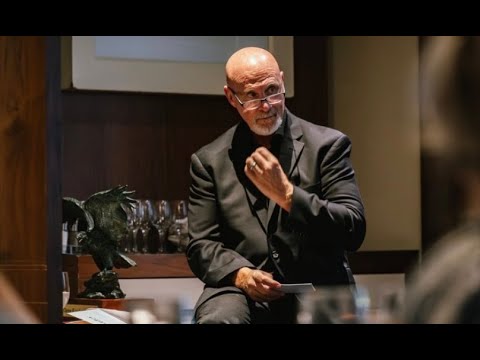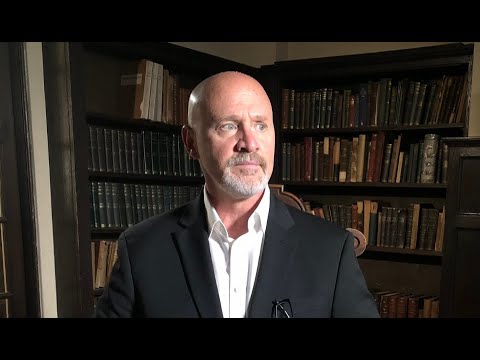Where was this brave spirit during Holgate’s five years on the board of Ten Network Holdings?
Why is it that some of our prominent female business journalists are attacking former Australia Post CEO Christine Holgate as she bravely launches a counter-punch against Scott Morrison?
Malcolm Turnbull got the tone right on The Project last night, declaring Morrison had launched an extraordinary misogynistic attack on Holgate. Turnbull said Morrison should apologise and reinstate her to the CEO role.
Contrast that with Janine Perrett’s caustic commentary about Holgate in Crikey on Tuesday. When you consider the pile-on that The Australian Financial Review‘s Aaron Patrick copped for his recent piece about Samantha Maiden, it’s somewhat surprising that Perrett didn’t suffer a bigger backlash. In yesterday’s Crikey, she stepped up for another whack — albeit slightly more nuanced.
Where is the journalistic sisterhood on this issue?
Perrett did correctly point out that even right-wing Murdoch scribblers who normally support Morrison are backing Holgate. There are two reasons for this. Firstly, she did nothing wrong and was appallingly treated and, secondly, she backed Lachlan Murdoch’s disastrous board coup and management stewardship at Ten Network Holdings.
The two most powerful figures at News Corp Australia are co-chairman Lachlan Murdoch — who is living in Australia until September — and Siobhan McKenna, who is currently chair of both Sky News Australia and Foxtel. Both of their corporate careers should have ended after a six-year car crash that finished with Ten Network Holdings going broke, but it was independent Ten directors like Christine Holgate who let them get away with it.
Rule 101 in the market for corporate control is that you don’t let an external predator or competitor have any form of power victory without paying a control premium which is available to all shareholders.

Holgate was one of Ten’s six independent directors when James Packer and Lachlan Murdoch decided to revitalise their disastrous One.Tel double act and jointly seize control of the company after only buying a joint 18% stake.
A quick skim of the 2010 Ten annual report shows that the other directors at the time were Brian Long, David Gordon, Jack Cowin, Dean Hawkins, Paul Viner, Paul Gleeson and executive chairman Nick Falloon. Four of these directors had only been appointed earlier in 2010 because there was a board clean-out following the decision of Canadian firm CanWest to sell its controlling 50.06% stake in Ten to institutions via Macquarie for $680 million in September 2009.
Holgate was the first ever female director of Ten and, with the debt-laden Canadians gone, she probably thought she was in for a relatively quiet time governing an organisation with no controlling shareholder. During her nine-year stint as CEO of Blackmores, she always had the chairman and controlling shareholder Marcus Blackmore looking over her shoulder. The vitamins rich-lister was even in Canberra on Tuesday supporting Holgate during the Senate committee appearance.
Shortly before Holgate joined the Ten board, the company made the strategic decision of launching a dedicated sports channel called ONE. This happened in March 2009 at the peak of the GFC sharemarket meltdown. And it really annoyed Foxtel and the Murdochs.
Ten had also teamed up with Seven to win the AFL rights from 2007-11 with a joint $780 million five-year offer, gazumping both the former James Packer-controlled Nine Network and Murdoch’s Foxtel pay-TV monopoly. This caused more gnashing of teeth for the Murdoch family.
One of the first big strategic decisions Holgate endorsed after joining the board was the “standing down” of long-term executive chairman Nick Falloon and gifting management rights to Lachlan Murdoch and his loyal side-kick Siobhan McKenna.
They then decided Ten wouldn’t bid for the AFL rights from 2012 until 2016, even though Seven agreed to stump up $475 million for the free-to-air component and Foxtel-Telstra replaced Ten as Seven’s primary partner. Lachlan remained a News Corp director right through this process, despite the blindingly obvious conflicts of interest.
Having torpedoed Ten’s AFL coverage, Lachlan then proceeded to shut down the network’s dedicated sports channel in April 2011. This meant less competition for Foxtel when mopping up sporting rights!
Holgate was no table-thumping independent standing up to the billionaires. She even agreed that the wholly unsuitable Gina Rinehart should join the Ten board just four days after she bought her 10% stake in late 2010.
In December 2015, after more than five years of dysfunctional billionaire debacles, Holgate finally quit the Ten board in December 2015, bowing out with a miserable 69,920 shares (worth barely $10,000 at the time). So much for skin in the game!
I found her answers to questions at multiple Ten AGMs to be uninspiring. In 2010 she didn’t even choose to answer a question (listen to audio here) about shareholders being ripped off in an unfair capital raising.
Having said all that, it is hard to expect an independent director on a big board to singlehandedly stand up to a gaggle of self-serving billionaires, but she has never publicly spoken about the experience or expressed regret about what happened.
Having now developed the spine to publicly take on Scott Morrison and the Liberal-stacked Australia Post board, it would be great if Holgate also opened up about what happened at Ten when she greenlit Lachlan Murdoch to lead a management circus that blew up almost $2 billion in shareholder value, breaking all sorts of governance and conflict of interest conventions along the way.

Inoculate yourself against the spin
Get Crikey for just $1 a week and support our journalists’ important work of uncovering the hypocrisies that infest our corridors of power.
If you haven’t joined us yet, subscribe today to get your first 12 weeks for $12 and get the journalism you need to navigate the spin.
Peter Fray
Editor-in-chief of Crikey

